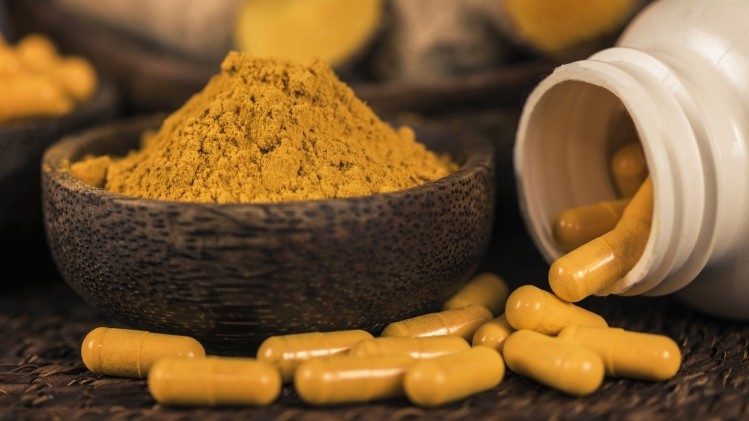Italy prohibits all health claims linked to turmeric, issues warning for labels

The potential health benefits of turmeric (Curcuma longa) and the curcuminoids it contains (curcumin, demethoxycurcumin and bisdemethoxy curcumin) include support for brain, cardiovascular, joint, and muscle health.
As reported by NutraIngredients, Italy recently recorded around 20 cases of hepatitis linked to turmeric-containing food supplements. Adverse events linked to the supplements have also been reported in France.
New warning and health claims prohibition
Luca Bucchini, managing director of Hylobates Consulting, told NutraIngredients that turmeric extracts with high curcumin concentrations have been very popular in Italy for some time. He also noted that health care professionals in Italy routinely prescribe food supplements for patients.
“These two factors may have contributed to a series of adverse effect reports involving the liver, some of them serious,” he said. “In response, regulatory action was taken in 2019, with new warnings and some limitation on claims on turmeric (which Italy allows pending EU harmonisation). There was discussion on the role of piperine in this case, but no limits were imposed, nor an upper limit to curcumin was imposed (contrary to Belgium, France, and other Member States).
“Industry had brought reassuring evidence to the discussion. It is now obvious that the adverse events have not gone away, and that cases of acute hepatitis of unknown origin can be linked to at least some turmeric extracts.”
A new assessment by the Italian Ministry of Health (link in Italian) has concluded that, in light of the persistent adverse events and potential hepatotoxicity, a new warning will be required on food supplements containing ingredients derived from Curcuma longa.
Brands must now include the following: “IMPORTANT WARNING In case of liver, biliary or calculosis abnormalities in the biliary tract, the use of the product is not recommended. Do not use during pregnancy and lactation. Do not use for prolonged periods without consulting your doctor. If you are taking medications, it is it is advisable to hear the opinion of the doctor. "
In addition, health claims associated with Curcuma longa, including those relating to digestive function, hepatic function, and joint function are no longer permitted. (The full list can be found on page 44 on this LINK).
Companies have until the end of 2022 to ensure their labels are compliant.
“The question is whether this will be sufficient to prevent further cases,” said Bucchini. “In a way, this is a test for Italy to show its ability to police its large (and liberal) botanical supplement market in a way that makes benefits available to consumers but also protects them from adverse events.
“From an industry's perspective, I feel those who have said that a few isolated cases should just be ignored "as chance events" have been proven wrong and should change tack,” he added.
“To preserve the benefits of turmeric for consumers, it is important to look carefully at the extracts, at the science and clinical evidence as it is, but also at how formulation of final products is made by customers of turmeric extracts. Industry should not lag behind events, if at all possible.”
Article 8 and the novel foods issue
As we reported yesterday, some stakeholders have raised concerns that the issues could lead to turmeric food supplements being restricted in the EU under Article 8, EU Regulation 1925/200.
Bucchini said that he thinks there is less pressure for action at the EU level since many countries have already regulated turmeric in some way.
“Regardless, we are advising, as consultants, to consider using Italian warnings across the EU, as they are the toughest at the moment, and for brands to look very carefully at dosages and formulation,” he said.
For Bucchini, the elephant in the room may still prove to be the novel food issue: The core of the issue focuses on forms with enhanced bioavailability: Turmeric (Curcuma longa) has limited solubility and absorption from the gut, and ingredient suppliers have focused on optimizing the delivery of curcumin and its metabolites for supplement and functional foods, including nanoparticle and liposomal encapsulation approaches, or combining turmeric extracts with piperine, a proven bioavailability enhancer.
EFSA set an acceptable daily intake (ADI) of 180 mg of curcumin per day for a 60 kg adult, and to avoid exceeding that limit, the limit is proposed as 85% of this for use in food supplements or 153mg in 60kg adult.
The French Agency for Food, Environmental and Occupational Health & Safety (ANSES) has stated that while the enhanced bioavailability forms do not appear to exceed the ADI, these new formulations can pose a risk of adverse effects by increasing the bioavailability of curcumin in the body.
And this is where we get to the novel foods approvals: Some companies may be offering curcumin doses that are within novel food limits and are close to the upper level of the permissible dose. However, the use of bioavailability enhancers may, for some experts, necessitate a new novel foods submission.




